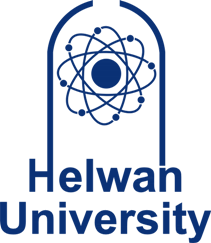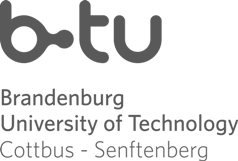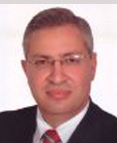|
|||||||||||||||||||||||||||||||||||||||||||||||||||||||||||||||||||||||||||||||||||||||||||||||||||||
|
|||||||||||||||||||||||||||||||||||||||||||||||||||||||||||||||||||||||||||||||||||||||||||||||||||||
|
A Welcome From |
|||||||||||||||||||||||||||||||||||||||||||||||||||||||||||||||||||||||||||||||||||||||||||||||||||||
|
|||||||||||||||||||||||||||||||||||||||||||||||||||||||||||||||||||||||||||||||||||||||||||||||||||||
|
|
Over the last decade, heritage and its studies occupied an important part in the programs and curricula in many of the reputed universities all over the world. This is on one hand to identify the role of heritage in tourism developments and also to focus on the impact of cultural tourism on local communities. On the other hand, it explores how heritage 'works' in the context of shifting values and to highlight the interrelation of heritage policies and international tourism. Helwan University (Egypt) and Brandenburg University of Technology Cottbus-Senftenberg (Germany) both shared the vision to establish a joint master program in "Heritage Conservation and Site Management". The DAAD generously funded the program since it started in 2013 and it currently enrolls intakes four and five with students from around ten nationalities. The first batch group graduated in November 2015. Distinguished staff members from the Helwan University, Faculty of Tourism and Hotel Management and Brandenburg University of Technology Cottbus-Senftenberg are involved in teaching, research and supervising the students. In addition, other academic staff members coming from different backgrounds and specializations are involved in all the activities of the program in order to address the nature and the variety of the courses. Strategic partners from both Egypt and Germany fully support the program in many aspects. They also participate in teaching, field studies and supervising the students' master thesis. The German Archaeological Institute (Germany) and the Ministry of Antiquities in Egypt are the two principal partners. Helwan University is welcoming ambitious, serious and promising graduates from many backgrounds to apply in this master program that has already become reputed, not only in Egypt, but in the entire MENA region. All the best and looking forward to seeing you in Egypt!
|
||||||||||||||||||||||||||||||||||||||||||||||||||||||||||||||||||||||||||||||||||||||||||||||||||||
|
|||||||||||||||||||||||||||||||||||||||||||||||||||||||||||||||||||||||||||||||||||||||||||||||||||||
|
|
The UNESCO World Heritage Convention of 1972 (Convention Concerning the Protection of World Cultural and Natural Heritage), the most significant international legal instrument for the protection of heritage, came into being because of events that occurred in Egypt. The concept of World Heritage was created by an emergency, when the international community mobilized resources (around US$ 80 million representing contributions of 50 countries) in order to save the temples of Abu Simbel and Philae, threatened with disappearance by the construction of the High Dam of Aswan in 1960. These common efforts marked an event of immense international significance: the realization that certain cultural and natural sites have an outstanding character that goes beyond national boundaries and makes them belong to all humanity: World Heritage. Ironically, Egypt - the country with the most rich and diversified cultural heritage in the world - lacks professional managers for this unique heritage and though it offers many programs in Archaeology and Tourism, it stood short of providing the necessary education and training to manage this heritage. Egypt boasts hundreds of archaeological sites and museums that need proper management and qualified professionals in this field. All over the Arab world the situation is not much different. This joint master program "Heritage Conservation and Site Management" (HCSM) of BTU Cottbus-Senftenberg and Helwan University which is funded by the DAAD, aims to respond to this critical need in capacity building and focuses on transferring German know-how and methodologies necessary for the administration and management of archaeological sites, thus contributing to the safeguarding of Egypt's cultural wealth. The program also aims to act as a focal point in North Africa, attracting participants from the entire region. In 2016 a new local track of the program was established to function alongside the joint track with a special focus on Disaster and Risk Management and endangered heritage at the time of war and conflict. The idea was to address the current political situation in the Middle East and to prepare for the "Zero Hour" where countries affected by civil war will need to deal with the damages to its heritage sites and cultural property. Heritage Management is an academic discipline that has been neglected in Egypt and all other Arab states for many years. The program offers the opportunity of knowledge transfer in a cross-cultural German - Arab setting that is of benefit for all parties involved and sets new grounds in German-Arab cooperation in Higher Education. The program covers a wide range of modules covering the following fields: conservation strategies and methods, strategic heritage management and planning, visitor management, presentation and interpretation, as well as general leadership skills. The variety of these subjects will endow graduates with the multidisciplinary skills required in the significance assessment, management and protection of archaeological sites. Graduates will be qualified to work in a broad range of heritage institutions in the private and public sector: government agencies, heritage organizations, museums, tourism agencies, etc. As heritage consultants and managers, they may be employed to develop and implement conservation and management plans for archaeological sites or other cultural heritage sites.
|
||||||||||||||||||||||||||||||||||||||||||||||||||||||||||||||||||||||||||||||||||||||||||||||||||||
|
|||||||||||||||||||||||||||||||||||||||||||||||||||||||||||||||||||||||||||||||||||||||||||||||||||||
| © 2018 Helwan University
|
|||||||||||||||||||||||||||||||||||||||||||||||||||||||||||||||||||||||||||||||||||||||||||||||||||||



